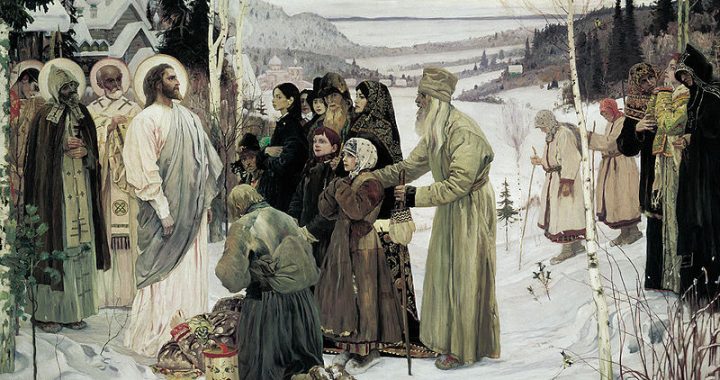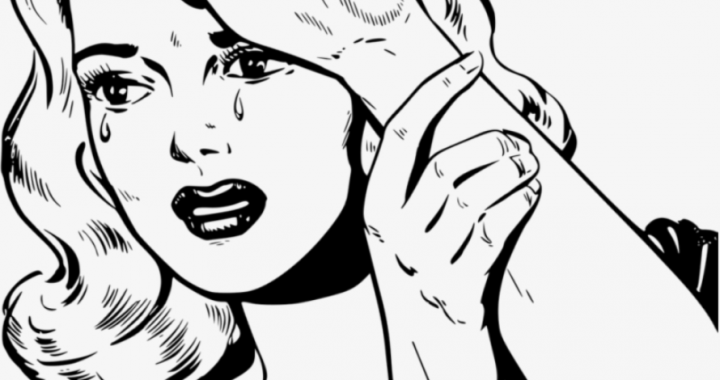It sucks to end. At least for me. I love beginnings, exciting starts, ignitions. But to end? That is hard.
Not only do I want to continue reading, the better the book the more I want to continue, but stopping to write hurts. Mr Bell puts it like this: by a good Act II the writer has seven or eight plates spinning. Unless you are able to take the plates down safely, plus add a flourish, you’re going to end with broken ceramic everywhere.
So it’s hard, hard to end, hard to stop, hard to reach the last page!!
Luckily, the gentleman gives us some good examples, some good tips, and even some good exercises.
. . .
Let’s recall the earlier LOCK scheme. You want a good lead to have a strong objective, meet impossible confrontation, but then end with the KNOCKOUT. It’s so true. We hate boxing matches that end by points, or a draw. A Nascar race without a crash? A difficult exam which we pass only a 76%? A marriage proposal that ends in an “alrighty”? No, way! Give us a resounding YES! Or a horrific HELL NO! This is art, people! And it occurs to me that Stories differ from Reality in that the former is completely on purpose, the second totally on accident. At least they should be.
Where I have let my art not “end up” but “turn up” randomly, I’ve felt unsatisfied. So let’s get conscious. Knock em out in the end. “Add Ahs and Uh-Ohs!” recommends Mr Bell. As in, give us mega reveals that make us say Ah! Or give us twists that make us say Uh-Oh! M. Night Shyamalan and Christopher Nolan respectively.
Another analysis: endings can be positive (Lead gets what he desires), negative (Lead doesn’t get what he desires), and ambiguous (we don’t know what happens, but feel a lot about it). The trick with the last one, which is one I personally like, is to ensure lots of emotion at the end. Another trick is to pair the positive or negative outcome with the inverse result. For example, say the lead gets what he wants, but that was bad for him all along. Or the lead doesn’t get what he wants, but it is for the best in the long run.
Sacrifice comes to play too at the end. Twists are nice. Tying up loose plots is important. As are endings that resonate with us, like a last musical note left lingering after the coda.
. . .
As for tips, and I know I stand to follow this advice, what kills endings is the rush to the finish line. Just when we should be slowing down, holding the knife to the throat, or leaning in for a kiss, we make the mistake of rushing. IF not we, again, then I. Tips here are to DREAM about the ending, either at night or during the day. Another is to think massive, list out ten big ideas and develop the most interesting ones. Or simply to take our time, even if we have a deadline, to give ourselves an extra day to put the book away. In order to come back to it, ready to deliver.
As for exercise, the first one in the chapter is wonderful. Reread the last couple of chapters from five novels that you love. What kind of ending is it? Why does it work for you? This will help you understand your preferences.
A la Finding Forrester, I’m going to punch the keys, copy some endings here in this post, giving a mini intro and a mini analysis in between.
Shall we?
. . .
The first is On the Road, by Jack Kerouac. A homie through and through, who’s first popular work of fiction opened my literary third eye. The ending especially:
The last time I saw him it was under sand and strange circumstances. Remi Boncoeur had arrived in New York after having gone around the world several times in ships. I wanted him to meet and know Dean. They did meet, but Dean couldn’t talk any more and said nothing, and Remi turned away. Remi had gotten tickets for the Duke Ellington convert at the Metropolitan Opera and insisted Laura and I come with him and his girl. Remi was fat and sad now but still the eager and formal gentleman, and he wanted to do things the right way, as he emphasized. So he got his bookie to drive us to the concert in a Cadillac. It was a cold winter night. The Cadillac was parked and ready to go. Dean stood outside the windows with his bag, ready to go to Penn Station and on across the land.
“Good-by, Dean,” I said. “I sure wish I didn’t have to go to the concert.”
“D’you think I can ride to Fortieth Street with you?” he whispered. “Want to be with you as much as possible, m’boy, and besides it’s so durned cold in this here New Yawk . . .” I whispered to Remi. No, he wouldn’t have it, he liked me but he didn’t like my idiot friends. I wasn’t going to start all over again ruining his planned evenings as I had done at Alfred’s in San Fransisco in 1947 with Roland Major.
“Absolutely out of the question, Sal!” Poor Remi, he had a special necktie made for this evening; on it was painted a replica of the convert tickets, and the names Sal and Laura and Remi and Vicki, the girl, together with a series of sad jokes and some of his favorite sayings such as “You can’t teach the old maestro a new tune.”
So Dean couldn’t ride uptown with us and the only thing I could do was sit in the back of the Cadillac and wave at him. The bookie at the wheel also wanted nothing to do with Dean. Dean, ragged in a moth-eaten overcoat he brought specially for the freezing temperatures of the East, walked off alone, and the last I saw of him he rounded the corner of Seventh Avenue, eyes on the street ahead, and bent to it again. Poor little Laura, my baby, to whom I’d told everything about Dead, began almost to cry.
“Oh, we shouldn’t let him go like this. What’ll we do?” Old Dean’s gone, I thought, and out loud I said, “He’ll be all right.” And off we went to the sad and disinclined concert for which I had no stomach whatever and all the time I was thinking of Dean and how he got back on the train an rode over three thousand miles over that awful land and never knew why he had come anyway, except to see me.
So in America when the sun goes down and I sit on the old broken-down river pier watching the long, long skies over New Jersey and sense all that raw land that rolls in one unbelievable huge bulge over to the West Coast, and all that road going, all the people dreaming in the immensity of it, and in Iowa I know by now the children must be crying in the land where they let the children cry, and tonight the stars’ll be out, and don’t you know that God is Pooh Bear? the evening star must be drooping and shedding her sparkler dims on the prairie, which is just before the coming of complete night that blesses the earth, darkens all rivers, cups the peaks and folds the final shore in, and nobody, nobody knows what’s going to happen to anybody besides the forlorn rags of growing old, I think of Dean Moriarty, I even think of Old Dead Moriarty the father we never found, I think of Dean Moriarty.
It’s so beautiful. The ending is very descriptive, and features states of the United States, which could be states of mind. Old east coast, youthful middle America, and the promising West. There is a real decision here too, that the narrator won’t have any more adventures with his friend, Dean, who opened the book and a life of adventures for the narrator. Also, I have always resonated with that God is Pooh Bear line, I don’t know why, and I love it. The question don’t even finish, so it’s more of a rhetorical phrase in a longer sentence. It’s like the last flickering of a candle, reading the last paragraph. Dead, Dean, old father like a religion that never made sense. Oof. Goosebumps! It’s one of those endings that feel like the Lead didn’t get what he want — continue being a kid with young Dean — but for the better. Join corny society, but for the better.
. . .
In the next ending, we see the protagonist of Khalil Gibran’s poem, The Prophet, climbing aboard the ship meant to take him back to his hometown. The whole poem the people of the city have asked him questions and engaged the poet in telling them their deepest desires, those which were hidden even from them. After revealing everyone’s heart, there is nothing left to do but close. And the ending has always shaken me to my core. It goes like this:
Fare you well, people of Orphalese.
This day has ended.
It is closing upon us even as the water-lily upon
its own tomorrow.
What was given us here we shall keep,
And if it suffices not, then again must we come
together and together stretch our hands unto the
giver.
Forget not that I shall come back to you.
A little while, and my longing shall gather dust
and form from another body.
A little while, a moment of rest upon the wind,
and another woman shall bear me.
Farewell to you and the youth I have spent with you.
It was but yesterday we met in a dream. You
have sung to me in my aloneness, and I of your
longings have built a tower in the sky.
But now our sleep has fled and our dream is
over, and it is no longer dawn.
The noontide is upon us and our half waking has
turned to fuller day, and we must part.
If in the twilight of memory we should meet
once more, we shall speak again together and you
shall sing to me a deeper song.
And if our hands should meet in another dream
we shall build another tower in the sky.
So saying he made a signal to the seaman, and
straightway they weighed anchor and cast the ship
loose from its moorings, and they moved eastward.
And a cry came from the people as from a single
heart, and it rose into the dusk and was carried out
over the sea like a great trumpeting.
Only Almitra was silent, gazing after the ship
until it had vanished into the mist.
And when all the people were dispersed she still
stood alone upon the sea-wall, remembering in her
hear his saying,
“A little while, a moment of rest upon the wind,
and another woman shall bear me.”
More goosebumps. This ending is how I like all my endings, with the right words, with melody of idea, and repetition of thoughts. I always liked when an ending repeated a line, it just feels right. Here we have the final movement of plot. The whole poem, the prophet was supposed to go on this journey back home — and it’s curious how it’s eastward, as if it’s to return to the beginning of things. Plus this idea of ocean, you know, that place where all rivers end at, really gives me a subconscious sense of death. It’s nice how the prophet gives us some lines about dust and the afterlife, living in their memories. It’s a feel good ending, with a glint of sadness, as if he were just tying up a loose end with a fairy tale, some mythic end which isn’t really real. And yet, what grounds us despite all that possible cynicism (that there is no afterlife) the spiritual priestess, possibly his lover, definitely the woman who “took him in first,” this Almitra, keeps a little line of the prophet’s like a gem. And maybe this gem will bear her another prophet soon, after a little while resting upon the wind.
. . .
The ending of The Brothers Karamazov also features speeches and farewells. Nothing like some parting words to conclude a powerful story. We get here an up and coming priest speaking at a young boy’s funeral. That’s one hell of a way to wrap up a story, death, especially of a young boy — which we would have seen earlier in the book. Also this is in an epilogue, so it’s like Dostoevsky says “This is the end of the end of the end . . . . And don’t you forget it!” Here it is, in all its repetitions, descriptions, voice, and goodbyes:
‘Boys, I should like to say one word to you, here at this place.’
The boys stood round him and at once bent attentive and expectant eyes upon him.
‘Boys, we shall soon part. I shall be for some time with my two brothers, of whom one is going to Siberia and the other is lying at death’s door. But soon I shall leave this town, perhaps for a long time, so we shall part. Let us make a compact here, at Ilusha’s stone, that we will never forget Ilusha and one another. And whatever happens to us later in life, if we don’t meet for twenty years afterwards, let us always remember how we buried the poor boy at whom we once threw stones, do you remember, by the bridge? and afterwards we all grew so fond of him. he was a fine boy, a kind-hearted, brave boy, he felt for his father’s honor and resented the cruel insult to him and stood up for him. And so in the first place, we will remember him, boys, all our lives. And even if we are occupied with most important things, if we attain to honor or fall into great misfortune–still let us remember how good it was once here, when we were all together, united by a good and kind feeling which made us, for the time we were loving that poor boy, better perhaps than we are. My little doves–let me call you so, for you are very like them, those pretty blue birds, at this minute as I look at your good dear faces. My dear children, perhaps you won’t understand what I am saying to you, because I often speak very unintelligibly, but you’ll remember it all the same and will agree with my words some time. You must know that there is nothing higher and stronger and more wholesome and good for life in the future than some good memory, especially a memory of childhood, of home. People talk to you a great deal about your education, but some good sacred memory, preserved from childhood, is perhaps the best education. If a man carries many such memories with him into life, he is safe to the end of his days, and if one has only one good memory left in one’s heart, even that may sometimes be the means of saving us. Perhaps we may even grow wicked later on, may be unable to refrain from a bad action, may laugh at men’s tears and at those people who say as Kolya did just now, “I want to suffer for all men,” and may even jeer spitefully at such people. But however bad we may become–which God forbid–yet, when we recall how we buried Ilusha, how we loved him in his last days, and how we have been talking like friends all together, at this stone, the cruelest and most mocking of us–if we do become so–will not dare to laugh inwardly at having been kind and good at this moment! What’s more, perhaps, that one memory may keep him from great evil and he will reflect and say, “Yes, I was good and brave and honest then!” Let him laugh to himself, that’s no matter, a man often laughs at what’s good and kind. That’s only from thoughtlessness. But I assure you, boys, that as he laughs he will say at once in his heart, “No, I do wrong to laugh, for that’s not a thing to laugh at.” ‘
‘That will be so, I understand you, Karamazov!’ cried Kolya, with flashing eyes.
The boys were excited and they, too, wanted to say something, but they restrained themselves, looking with intentness and emotion at the speaker.
‘I say this in case we become bad,’ Alyosha went on, ‘but there’s no reason why we should become bad, is there, boys? Let us be, first and above all, kind, then honest and then let us never forget each other! I say that again. I give you my word for my part that I’ll never forget one of you. Every face looking at me now shall I remember even for thirty years. Just now Kolya said to Kartashov that we did not care to know whether he exists or not. But I cannot forget that Kartashov exists and that he is not blushing now as he did when we discovered the founders of Troy, but is looking at me with his jolly, kind, dear little eyes. Boys, my dear boys, let us all be generous and brave like Ilusha, clever, brave and generous like Kolya (though he will be ever so much cleverer when he is grown up), and let us all be as modest and as clever and as sweet as Kartashov. But why and I talking about those two? You are all dear to me, boys, from this day forth, I have a place in my heart for you all, and I beg you to keep a place in your hearts for me! Well, and who has united us in this kind, good feeling which we shall remember and intend to remember all our lives? Who, if not Ilusha, the good boy, the dear boy, precious to us for ever! Let us never forget him. May his memory live for ever in our hearts from this time forth!’
‘Yes, yes, for ever, for ever!’ the boys cried in their ringing voices, with softened faces.
‘Let us remember his face and his clothes and his poor little boots, his coffin and his unhappy, sinful father, and how boldly he stood up for him alone against the whole school.’
‘We will remember, we will remember,’ cried the boys. ‘He was brave, he was good!”
‘Ah, how I loved him!’ exclaimed Kolya.
‘Ah, children, ah, dear friends, don’t be afraid of life! How good life is when one does something good and just!’
‘Yes, yes,’ the boys repeated enthusiastically.
‘Karamazov, we love you!’ a voice, probably Kartashov’s cried impulsively.
‘We love you, we love you!’ they all caught it up. There were tears in the eyes of the many of them.
‘Hurrah for Karamazov!’ Kolya shouted ecstatically.
‘And may the dead boy’s memory live for ever!’ Alyosha added again with feeling.
‘For ever!’ the boys chimed in again.
‘Karamazov,’ cried Kolya, ‘can it be true what’s taught us in religion, that we shall all rise again from the dead and shalll live and see each other again, all, Ilusha too?’
‘Certainly we shall all rise again, certainly we shall see each other and shall tell each other with joy and gladness all that has happened!’ Alyosha answered, half laughing, half enthusiastic.
‘Ah, how splendid it will be!’ broke from Kolya.
‘Well, now we will finish talking and go to his funeral dinner. Don’t be put out at our eating pancakes–it’s a very old custom and there’s something nice in that!’ laughed Alyosha. ‘Well, let us go! And now we go hand in hand.’
‘And always so, all our lives hand in hand! Hurrah for Karamazov!’ cried once more rapturously, and once more the boys took up his exclamation: ‘Hurrah for Karamavoz!”
Talk about eight, nine, ten plates being brought down safely! Typing this ending I remembered many moments of the past, it’s like I got the whole book condensed into a final scene. Maybe the blunt of a whole book can be lead to the fine edge of a wedge we call the ending. Throwing rocks. The sinful father. Wow. And for the first time I realize just much Ilusha’s story (a subplot) parallels Alyosha’s story with his terrible father (the main plot). More on this in a second.
The first time I encountered Dostoevsky was in an Argentine writer who quoted the part about “a happy memory is enough to save us all,” years and years before I encountered this last page of the author’s last book. When I got to the ending it felt like a large emotional figure came full circle in my life, like, “oh!! there it is!!” and that was after having read a few more things by Dostoevsky. Nevertheless, even without having read about it before, this ending would have BLOWN ME AWAY. Because it’s such an important life lesson. It’s like the author were some prophet with some divine truth. Hold a memory sacred, let it save you and everyone. That “us,” right? It’s so powerful.
I remember a professor of mine making a big deal about the pancakes at the end. It was his theory that the real triumph of life over death is in customs, like eating pancakes after a funeral. Something so simple and mundane, it must defeat death. Add to this what we read in How to Read Literature Like a Professor, where it talks about moments of eating as communion, and we really understand how a group of young mourners gathered to share food, compounded by the promise to remember their friend for ever, really draws a glow around the religious/afterlife aspect of it all.
Side note, talk about resonance, where everyone is chanting Karamavoz. Way to make readers remember your book title 🙂 I remember thinking this when, during the trial, the defense lawyer for Alyosha’s brother stated something along the lines of, “In England they have their Hamlet; in Russia we have our Karamazov!” and I was like, I see you Dostoevsky, I see you! And boy talk about TAKING YOUR TIME HERE!!
Ok but craziest of all is this subplot meets major plot! This is an epilogue, so it’s like bonus info that serves to underline everything. For half of the book we despise old Karamazov, we even throw stones at him, as if we judge him, (Let he who has not sinned . . .). But Alyosha defends him as best as he can, but really can’t. The old man gets murdered anyway, by who knows who, maybe Alyosha’s brother. It isn’t until this final passage where Alyosha, praising the dead Ilusha, who had defended his corrupt father even to death, that Alyosha is vindicated . . . at least that’s my interpretation having reread only the ending just now.
It’s essentially saying, our father, our pasts, our religions, and our very beliefs can be broken and bad. That is why it is up to us, as humans, as sons, as decedents, as creatures free will, endowed with the ability to change the course of history, to do it. To see the good, the just in others, even if it’s one thing. It might just be the means to save us.
And ‘Ah, how splendid it will be!’




